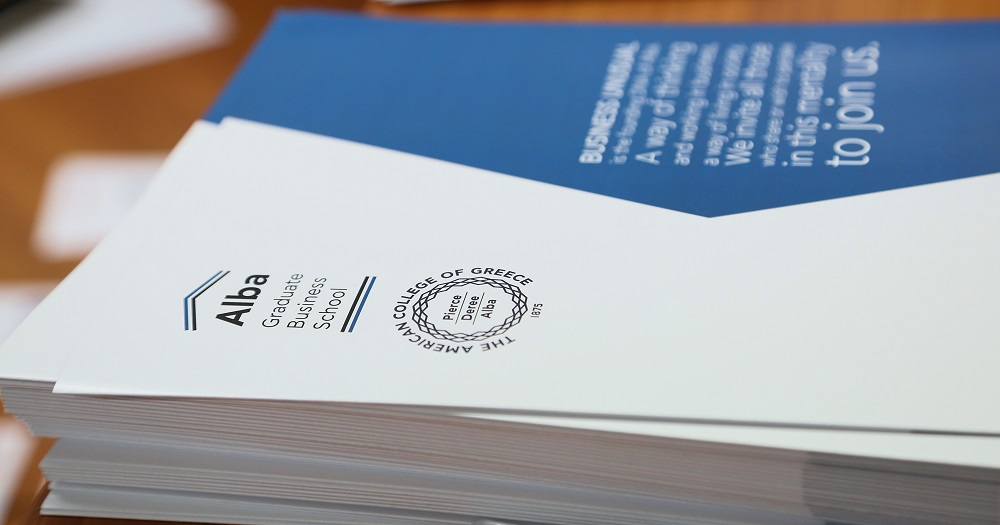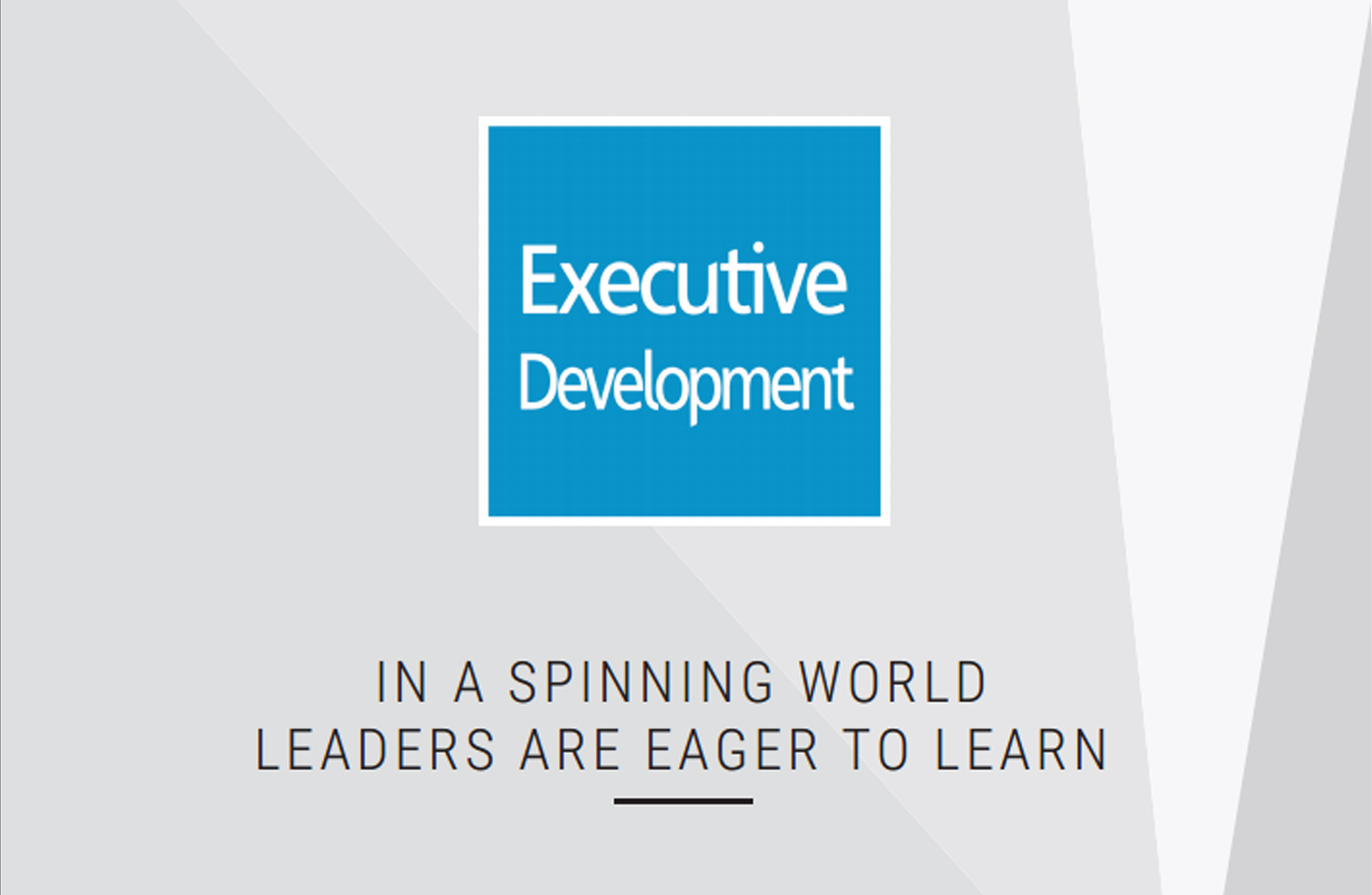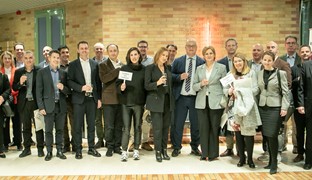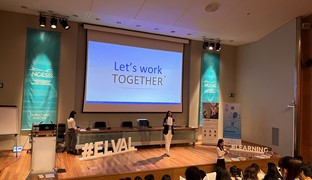How leadership promotes creativity in Greek enterprises
The findings of the study “Best practices of Creative Leadership in Greek enterprises” were presented by SEV and Alba Graduate Business School, The American College of Greece on January 26, 2021.
The presentation was given by Dr. Charalampos Mainemelis, Director of the SEV Center of Excellence in Creative Leadership and Professor of Organizational Behavior at Alba Graduate Business School, The American College of Greece.
The purpose of the research was to identify the best practices of creative leadership in Greek organizations. The study examined the conditions that foster the transition from more conventional forms of leadership to forms of leadership that promote creativity and innovation.
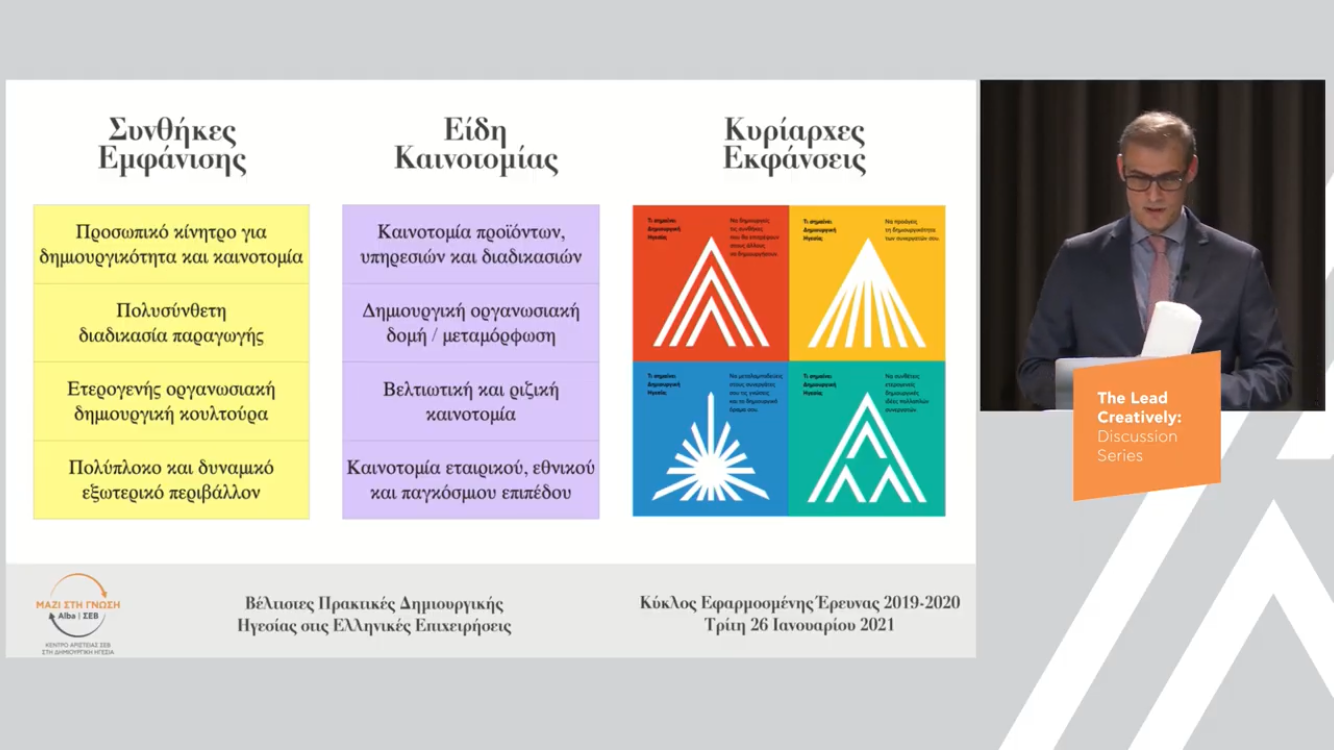
The study found that the conditions that foster creative leadership entail the leader’s personal motive to lead creatively; high degrees of complexity and ambiguity in the production process; a pluralistic organizational culture that promotes personal initiative, diversity, and creative behavior; and high degrees of uncertainty, ambiguity, and dynamic complexity in the organization’s external environment. The study concluded that the interaction among these four conditions results in different patterns of emergence of creative leadership across organizational and industry contexts.
All four conditions are usually present in the creative and cultural industries, where the concept of production is very closely linked to the concept of creative production, and the concept of leadership is virtually indistinguishable from the concept of creative leadership. Several of the enterprises that were examined in the study embrace this pattern.
A second pattern that may lead an organization to develop creative leadership is the presence of a complex and ambiguous process for developing new products or/and services, a fact that invites a great deal of creative thinking and behavior in the production process. The study identified that this pattern is more common in companies whose production processes are closely related to advanced forms of technology.
The third pattern observed in the study involves organizations that face a complex, volatile, and uncertain external environment that threatens their prosperity and viability. The research identified companies that adapted proactively to this evolving threat by creatively transforming themselves into more dynamic and innovative organizations.
The fourth condition involves an intrinsic personal motive of the leader-founder to lead creatively his or her company towards creativity and innovation. An interesting finding of the study was that in some larger and more established Greek companies, this underlying creative mindset was successfully transmitted by the founder to subsequent generations of senior executives.
It is worth noting that the research focused on tangible and concrete examples of innovation and creativity in the organizations studied. An overarching conclusion of the study was that creative leadership in Greek organizations may involve product innovation, service innovation, innovation in the production process, the creative transformation of raw materials, the design of creative organizational structures, incremental and radical innovations, as well as innovation at the organizational, national, and global levels.
Another set of research findings concerns the three main manifestations of creative leadership in Greek organizations.
The first is facilitative creative leadership, whereby the main focus of creative leadership is to consistently trigger and support the creativity of as many employees as possible. The study found that facilitative creative leadership is the prevalent form of creative leadership in about half of the companies that were studied.
The second manifestation is directive creative leadership, whereby the creative identity of the organization is build upon and revolves around the creative identity of its leader. In such cases, creative leadership focuses on inspiring, educating, and mobilizing the team towards the materialization of the creative leader’s authentic vision. The study found that directive creative leadership is the dominant form of creative leadership in some small or medium Greek enterprises that manifest a powerful creative potential.
The third manifestation is integrative creative leadership, whereby the main task of creative leadership is to elicit heterogeneous creative inputs from various professionals and then to synthesize these multiple creative contribution and the creative leader’s guiding creative vision into a final product, service, or performance. The study found that integrative creative leadership is more prevalent in artistic, design, and technology-driven organizational contexts.
A more encompassing and overarching manifestation of creative leadership in Greek organizations involves the creation of the conditions that will later allow other generations to create in the future what might not be possible to create today.
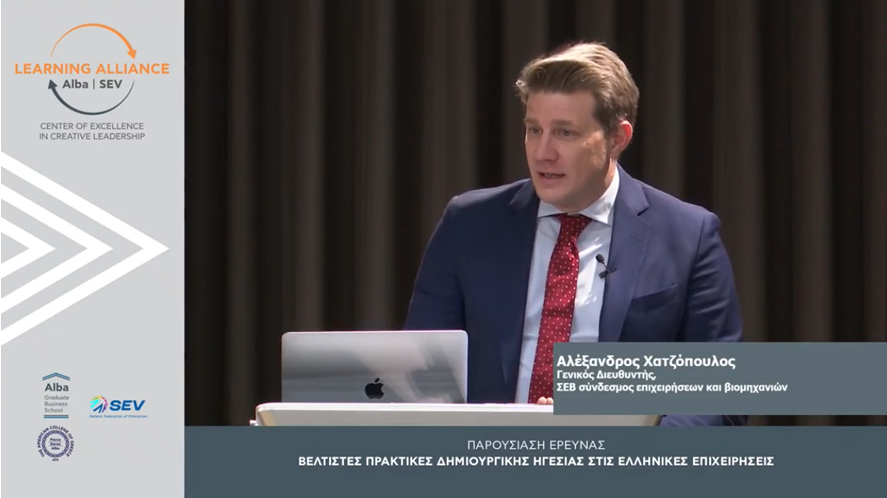
Commenting on the research findings, SEV’s Director-General, Mr. Alexandros Chatzopoulos, stated: “Creativity is one of the most decisive leadership skills for the adaptability and prosperity of modern enterprises in today’s complex world.” After thanking Professor Mainemelis and his team, Mr. Chatzopoulos stressed the practical value of research for the corporate world. “[The research] bears proof that there are Greek enterprises that implement best practices of creative leadership, and that they can act as good examples for changing operational and models.” He also noted that: “The people who took part in this original research spent a lot of time, discussed their work in detail, and helped a worthy cause: the dissemination of acquired knowledge with no personal gain in mind. This dimension of the research is valuable for everyone, Alba, SEV and the whole of the Greek economy. It signals that there is an informal alliance of people who care for the upgrade and evolution of the Greek economy, and its business community, through more and better knowledge.”
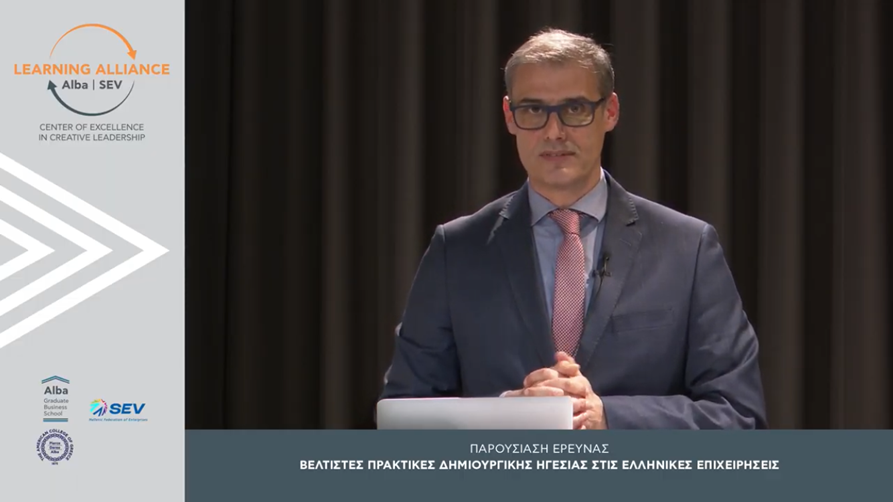
Professor Charalampos Mainemelis, Director of the SEV Center of Excellence in Creative Leadership and Professor at Alba Graduate Business School, The American College of Greece, noted: “To date, our knowledge about creative leadership has emerged almost exclusively from research conducted with companies and executives abroad. The research ‘Best practices in Creative Leadership’ has recorded for the first time the conditions that foster creative leadership and its main manifestations in Greek organizations. We believe that the tangible examples and the rich findings included in this study will contribute to the dissemination of best practices of creative leadership in the wider Greek business community.”
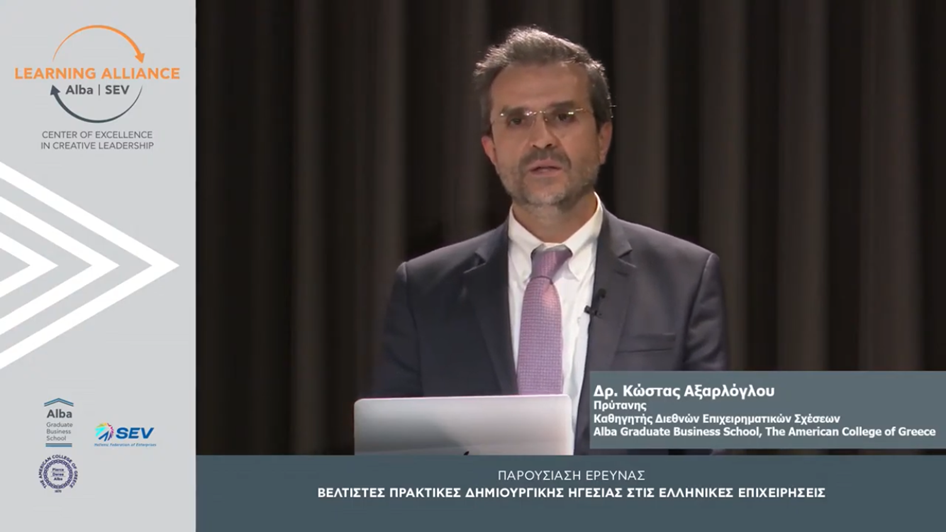
Dr. Kostas Axarloglou, Dean and Professor of International Business Relations, Alba Graduate Business School, The American College of Greece, highlighted that: “The research ‘Best practices in Creative Leadership’ conducted by Dr. Mainemelis’s research team in the context of the SEV Center of Excellence in Creative Leadership unveils an encouraging picture about best practices and manifestations of creative leadership in our country. The findings of this research are an excellent source of reflection of the business community and our society and for the empowerment of creativity in a society that aspires to innovate and move forward for the benefit of us all.”


